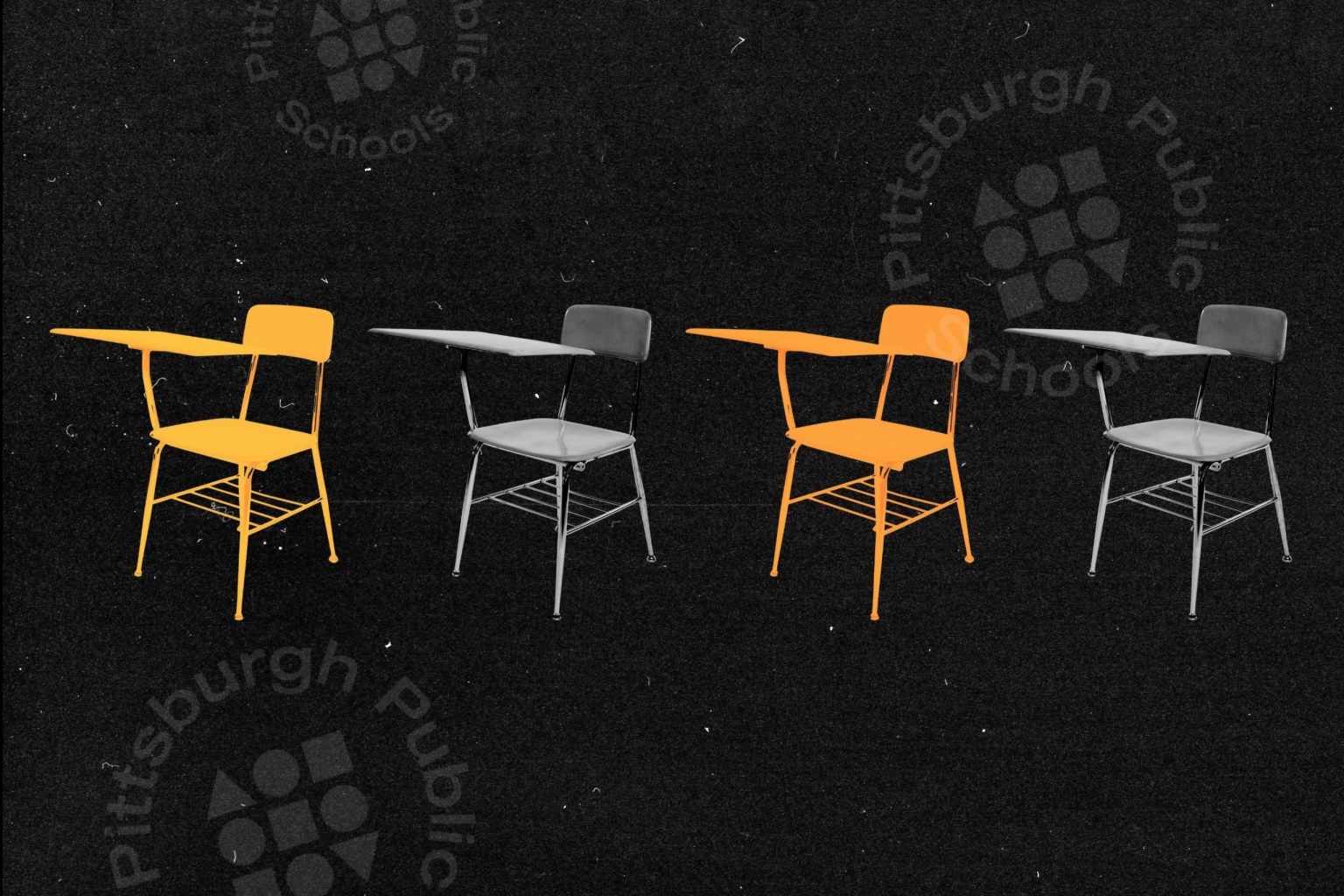Photos via Adobe Stock and Pittsburgh Public Schools. (Photo illustration by Natasha Vicens/PublicSource)
The groups have bold visions for how to reform the district. But clashes over charter schools, funding and school closures could derail their individual efforts to improve the district.
by Oliver Morrison, PublicSource
The emergence of the Black Women for a Better Education political action committee in 2021 has changed the political dynamic shaping Pittsburgh Pittsburgh Schools. The group endorsed three school board candidates who went on to win and one of those board members, Sala Udin, was elected board president. The PAC was the most outspoken critic of former superintendent Anthony Hamlet, who resigned after the release of an ethics investigation last year.
The PAC joins three other groups in actively driving agendas in the state’s second largest urban school district: The Pittsburgh Federation of Teachers, A+ Schools and OnePA’s Education Rights Network. Each of the nine current district board members was endorsed by at least one of the four groups.
As Pittsburgh Public Schools [PPS] prepares to make some of the toughest decisions it’s had to make in more than a decade about staffing and school closures, these four groups are likely to have outsized influence.
Although the groups share more in common than they sometimes admit, they also have profound differences about what education should look like in the city. Some believe the district has the resources it needs but would like to radically transform how they’re being managed, while others are advocating to add more resources overall to create change. Most of the groups have vowed to work with each other but that would require setting aside their differences to come to a collective vision for the district.
A+ and Black Women
Although none of the groups are completely aligned, there are clear factions. A+ Schools and Black Women for a Better Education [BWBE] both invoke the need for a radical transformation of the district’s status quo. James Fogarty, the director of A+, said the current split between magnet schools and neighborhood schools has created a two-tiered system of education, where some schools’ populations are nearly all Black and brown students. He wants the district to do more to spread economic privilege around and spend more district resources on the students with the most need.
But the two groups are structured differently. A+ Schools does advocacy work on issues to try to influence the administration and board, but not political advocacy. “We’re trying to be an informer of a great school board but not a creator of it,” Fogarty said. BWBE has primarily done political advocacy so far, although it recently held several information workshops.
Both groups take an open-minded approach to charter schools, pointing out that some charter schools are doing better than district schools and others are doing worse. BWBE believes parents should have the right to choose what school is best for their own children and doesn’t think Black parents should have to continue to shoulder the burden of a district that isn’t working for many.
LaTrenda Sherrill, one of BWBE’s leaders, said the group is trying be open-minded rather than ideological. “Much of the politics in the region is guided by super black-and-white thinking. Either you’re for charter schools or for traditional public schools; either you support teachers or you don’t,” she said. “And we have so many young people that live in the gray.”
Several members of the Black Women for a Better Education group pose for a portrait. (Photo courtesy of LaTrenda Shirrell)
Read entire article here
